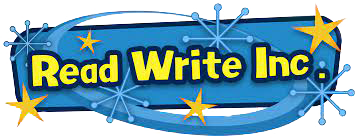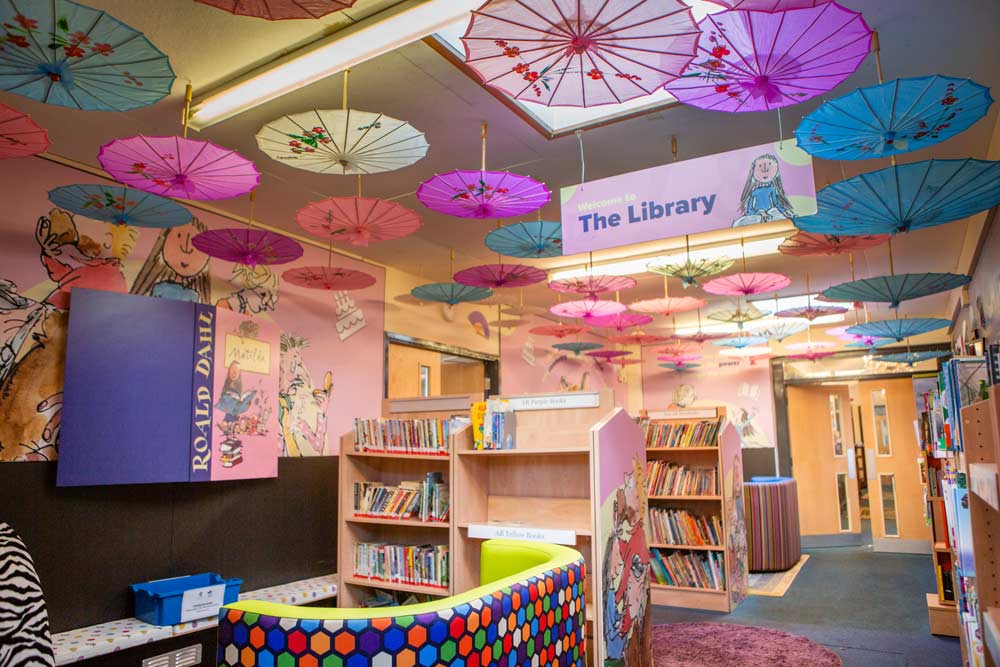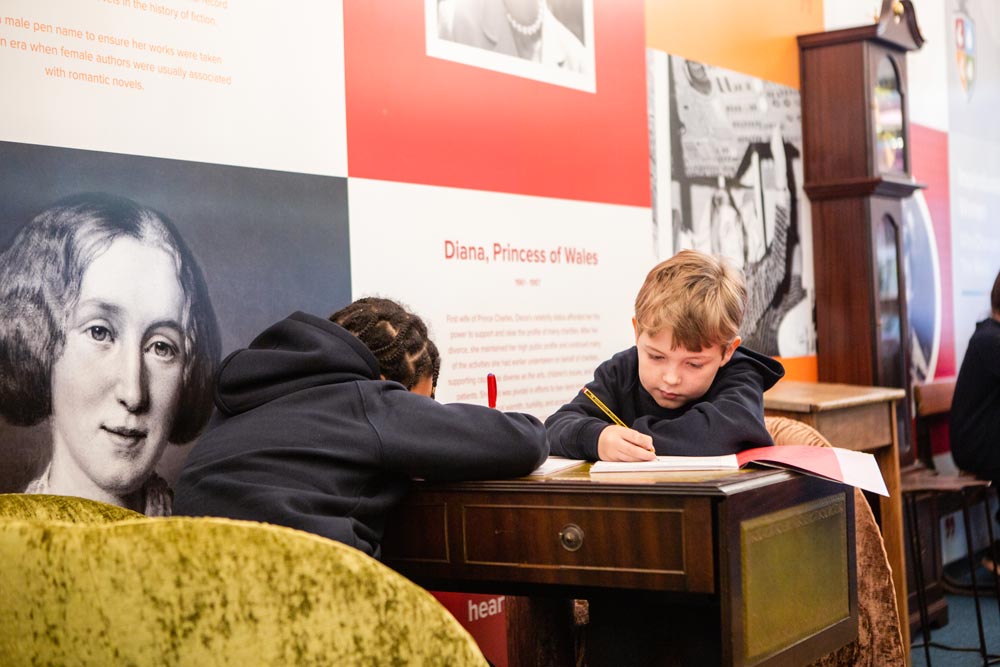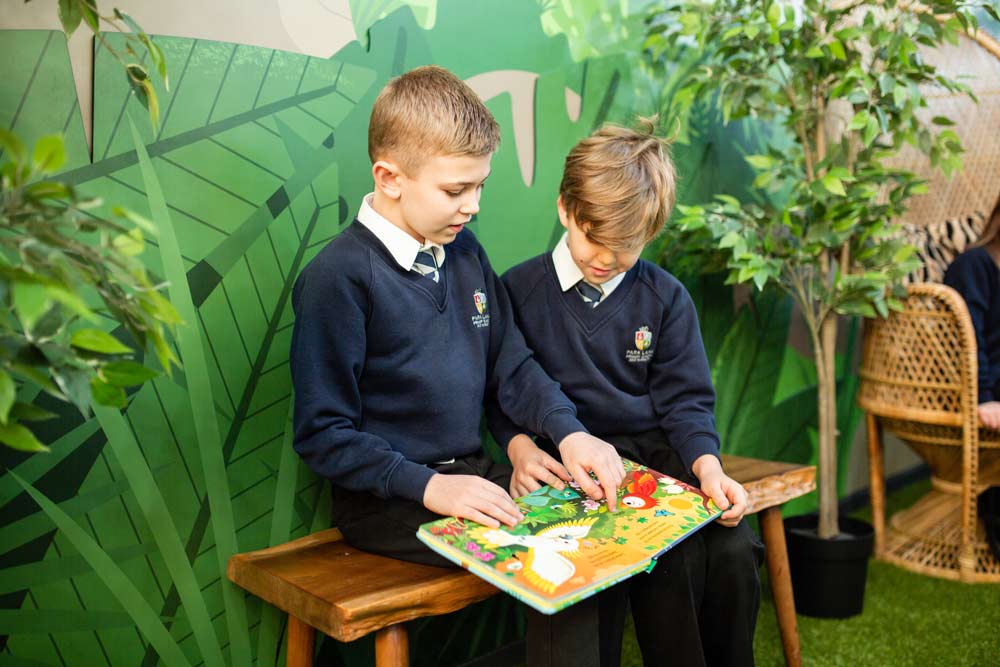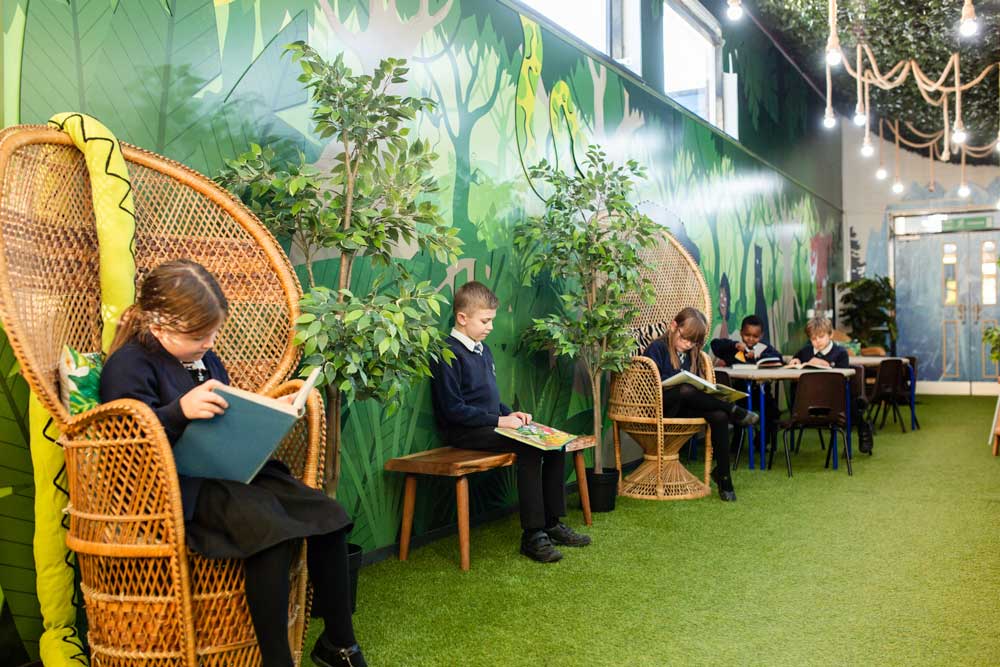Latest news
Gallery
Filter
Facebook feed
Twitter feed
>> EARLY READING
“The more that you read, the more things you will know. The more that you learn, the more places you’ll go.”
Dr. Seuss
Intent
At Park Lane we believe that reading gives children the tools to become independent life-long learners. Reading is at the core of our teaching and learning at Park Lane and when teaching children phonics, we are teaching the stepping stones to becoming successful, independent readers.
At Park Lane our phonics teaching is delivered through the Read Write Inc (RWI) scheme which we believe gives the children the best possible start to their literacy. RWI is a complete phonics program that helps all children to read accurately and fluently so that they can focus on developing their skills in comprehension, vocabulary and spelling. The program is designed for children aged 4-8, however, here at Park Lane we begin teaching phonics to our children in Nursery to give them the best possible start to their reading. We will also continue teaching children phonics through RWI beyond the age of 8 if they still need support in their reading. During RWI children are taught in small groups of the same reading ability. The children are assessed every 6-8 weeks and regrouped to support their progress. RWI is designed so that all children experience success in their reading.
At Park Lane we aim to foster a love of reading, stemming from this feeling of early success. Throughout the program children will learn the English alphabetical code: the 150+ graphemes that represent each 44 speech sounds. They rapidly learn sounds and the letter, or groups of letters, they need to represent them, in three sets of Speed Sound Lessons. Simple and enjoyable mnemonics help all children to grasp the letter-sound correspondences quickly. This knowledge is taught and consolidated every day. Words that are not phonetically decodable (Red Words) are taught and practised frequently. Lively phonics books are closely matched to the children’s increasing knowledge of phonics and Red Words. Repeated readings of the texts support their increasingly fluent decoding. A thought-provoking introduction prompts for thinking out loud and discussion help teachers ensure that children comprehend what they are reading.
Once children are fully confident in their phonic coding they move on to comprehension activities that allow for critical discussion and provide children with the skills required for deeper learning. Children who do not complete the RWI scheme by the end of Key Stage 1, are placed in daily intervention sessions to ensure all children are given the support required to read, and ensure no child is left behind.
Implementation
The systematic teaching of phonics has a high priority throughout the Early Years Foundation Stage (EYFS) and Key Stage 1. Phonics is taught daily to all children in EYFS, Year 1 and those in Year 2 who have not passed the phonics screening in Year 1 or completed the Read, Write, Inc (RWI) phonics programme. In the EYFS, a vital aspect in the development of essential knowledge and skills in phonics is the use of continuous provision. This means that children are using and developing taught skills throughout the year on a daily/weekly basis. We constantly provide enhancement opportunities to engage learners and link to our topics. We encourage children to be independent in the continuous provision. Children also take part in daily synthetic phonics sessions, which follow the Read Write Inc. scheme. Children are encouraged to transfer the skills they learn in phonics sessions into their independent reading and writing in the continuous provision.
Children at Park Lane Primary School are taught to:
- decode letter/sounds correspondences quickly and effortlessly, using their phonic knowledge and skills
- read ‘tricky’ (red words) on sight
- understand what they read
- read aloud with fluency and expression
- write confidently, with a strong focus on vocabulary and grammar,
- spell quickly and easily by segmenting the sounds in words
- acquire good handwriting
In addition, children are taught to work effectively with a partner to explain and consolidate what they are learning. This provides the teacher with opportunities to assess learning and to pick up on difficulties, such as children’s poor articulation, or problems with blending or alphabetic code knowledge. Children are grouped, according to their progress in reading rather than their writing. This is because it is known that children’s progress in writing will lag behind progress in reading, especially for those whose motor skills are less well-developed. For those children who are not making the expected level of progress in phonics and reading, they will have 1:1 or small group interventions. With RWI one-to-one tutoring for our slowest progress readers in YR to Y4 and RWI Fresh Start for those children in Y5/6 that are below age-related expectations, we ensure that no child gets left behind.
Teachers at Park Lane Primary School:
- Have a strong knowledge of the RWI scheme and teach the sessions confidently and enthusiastically
- Act upon regular feedback and receive coaching sessions when requested and team teach with Reading Lead to build confidence and knowledge
- Deliver a pre-planned and proven successful 1-1 tutoring scheme with the lowest 20%
- Support the knowledge of RWI and phonetic coding in all lesson to strengthen children’s ability to use their knowledge
- Deliver daily support to all children to enable speedy progress and attainment
- Staff ensure that children read books that are closely matched to their increasing knowledge of phonics and the ‘red words’. This is so that, early on, they experience success and gain confidence that they are readers. Alongside this, the teachers read a wide range of stories, poetry and non-fiction to children: they are soon able to read these texts for themselves.
- Read stories to the children every day where a love of reading is promoted, and keep reading materials available and inviting to all ability students.
Impact
Through the teaching of systematic phonics, our aim is for children to become fluent readers by the end of Key Stage 1. The children read books in line with their phonics knowledge. Children can then focus on developing fluency and comprehension throughout the school. Embedding the alphabetic code early on means that children quickly learn to write simple words and sentences. Attainment in phonics is measured through ongoing assessment throughout the Read, Write, Inc programme and by the phonics screening check at the end of Year 1.
